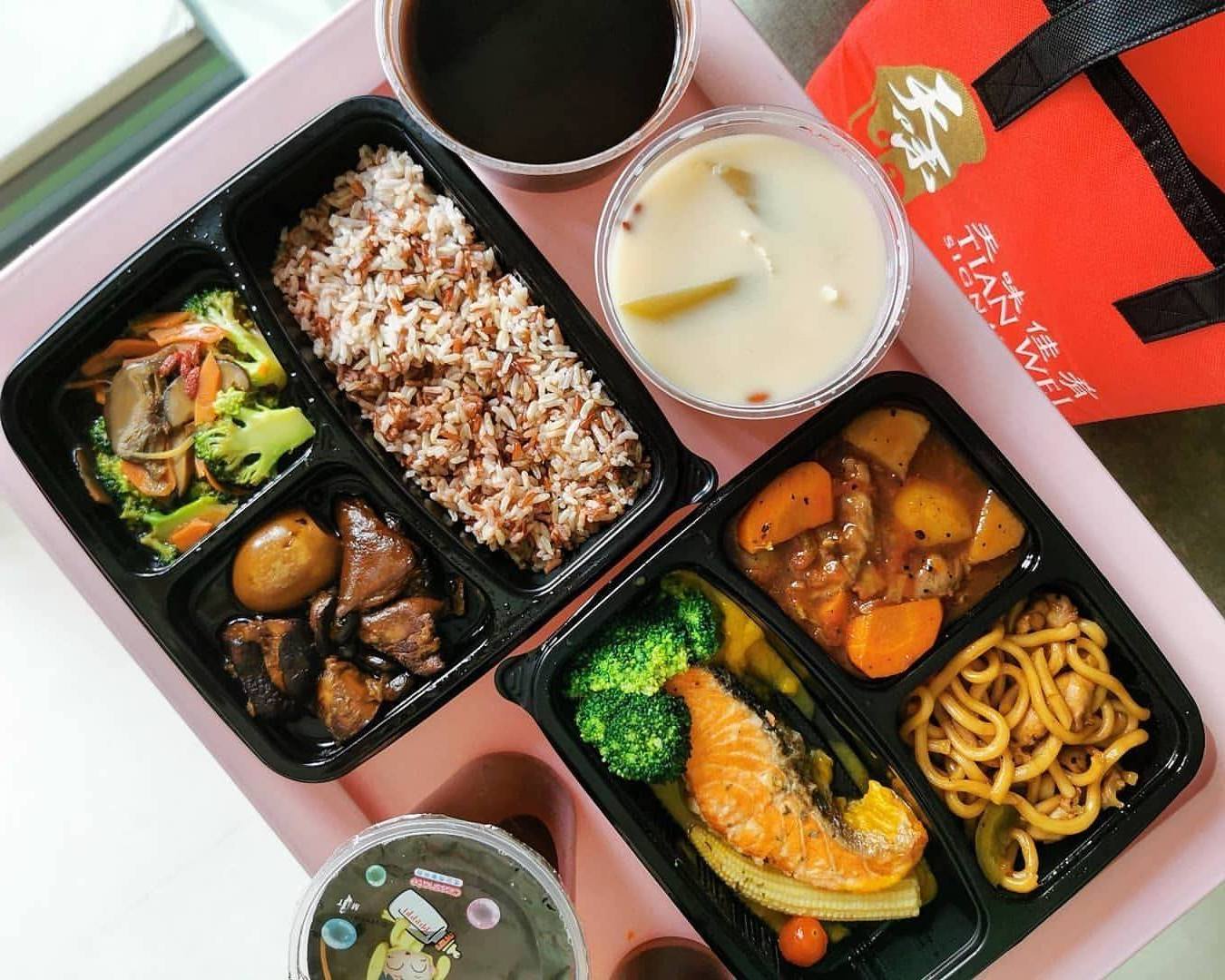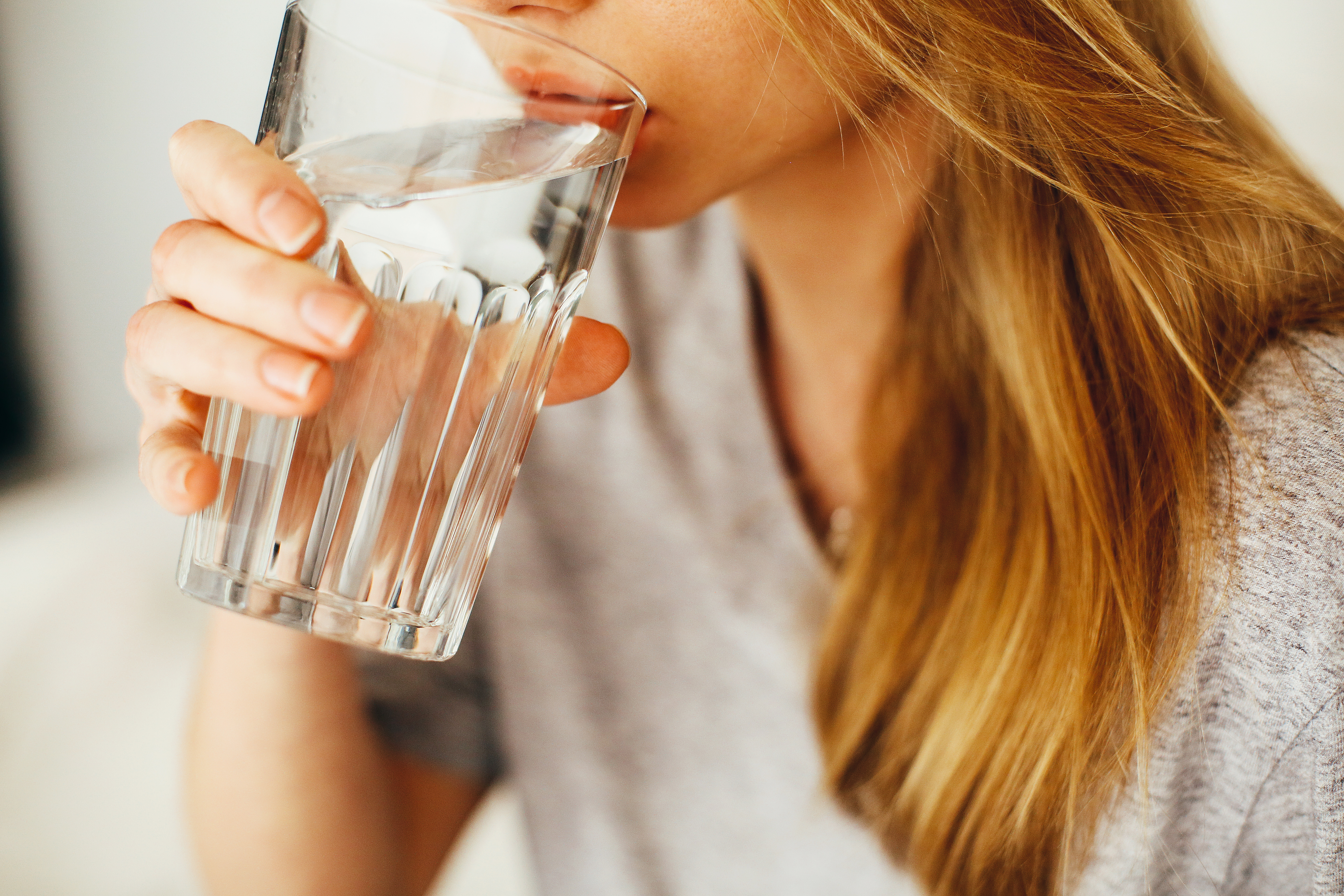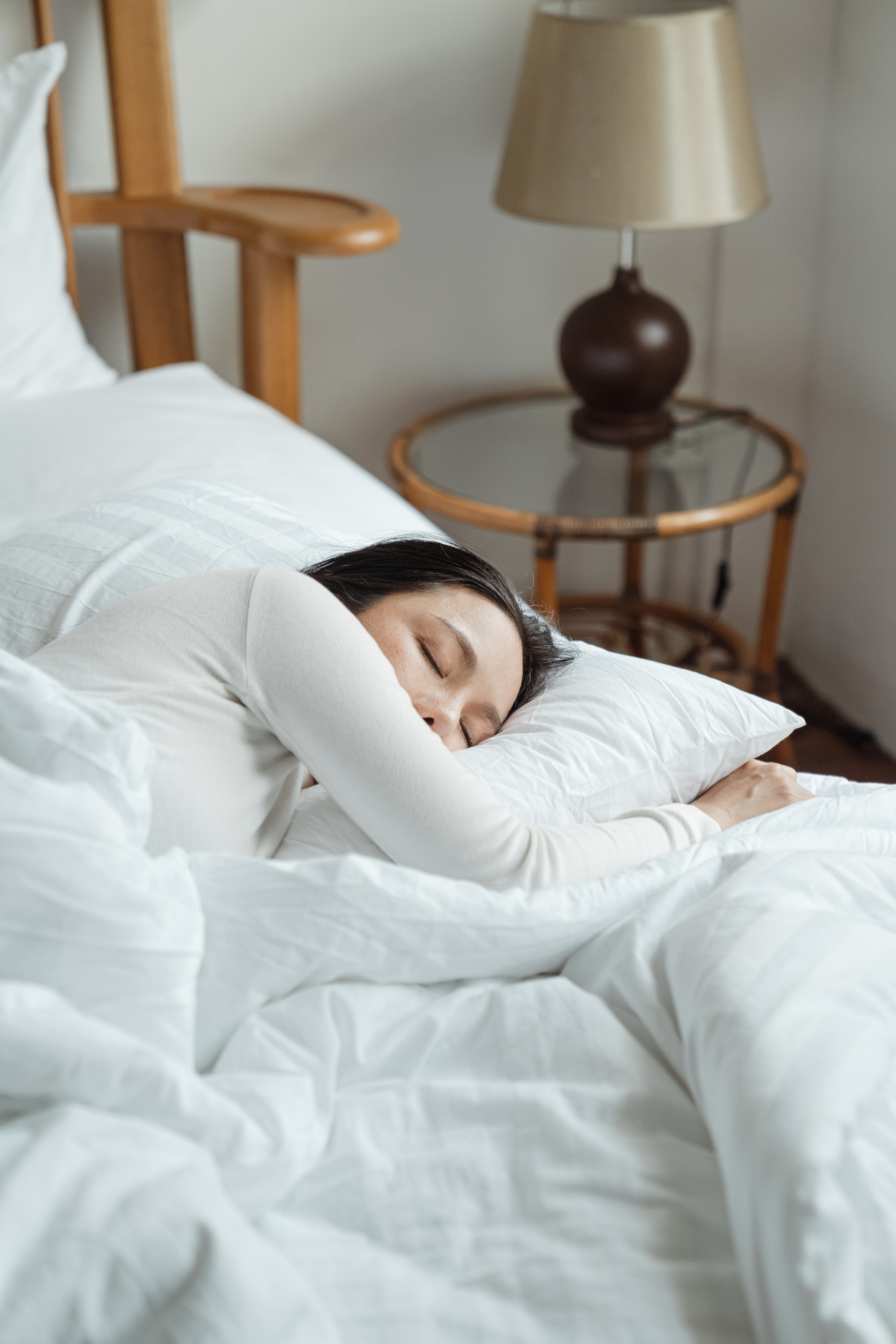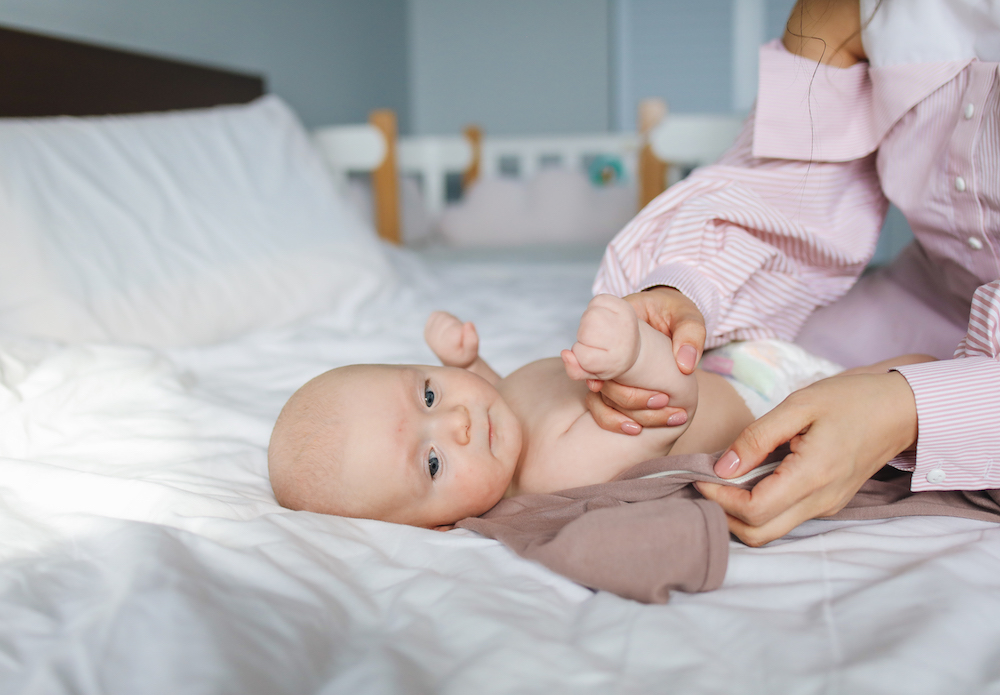After you’ve given birth, observing a period of confinement can help speed up your recovery as well as help you focus on taking care of your newborn.
Once you’ve given birth, it’s time to focus on yourself and your newborn. We’ve summarised some popular confinement myths across the major cultures in Singapore – as well as those you can adapt to suit your modern lifestyle. During this time, you’ll need to depend on others, whether family, or services like confinement food delivery, lactation consultants and postnatal masseuses. Another option is to just engage a confinement nanny or helper to aid you through this period.
What to Eat

Traditionally, Malay, Chinese and Indian cultures believe that mums should avoid cooling food during their confinement. For instance, confinement durations for Indians, Malays and Chinese are 40, 44 and 30 days respectively. After delivery, mums will need to purge out the “wind” in their bodies, promote blood circulation, strengthen joints and promote your milk supply.
Hence, mums may have to adjust the way they usually eat. For example, the Chinese will use a lot of ginger, wines and sesame oils in their diet. Some popular dishes include pigs’ trotters cooked with ginger and vinegar, and fish soup boiled with papaya. Additionally, Indian mums may eat food like chicken and shark fish with herbs, and cooking should be done with gingelly oil. Herbs may also be added to the food to promote healing the uterus, strengthening the body and keeping mums warm. Similarly, a lot of ginger and garlic is used when cooking, as well as food that promote breast milk production. Likewise Malay mums will also use a lot of ginger, turmeric and drumstick leaves. Examples of dishes include snakehead and threadfish.
What to Drink

While Chinese mums might drink longan and red date tea, Malay mums will drink jamu, consisting of turmeric and ginger. Meanwhile, Indians would take garlic milk, and abstain from cooling foods like tomatoes, cucumbers, coconut milk and mutton. Some Chinese practices advocate drinking wine to expel the wind. However, doctors caution against drinking too much, as the alcohol may go into your breastmilk and be transferred to your baby during breastfeeding.
Take note that the alcohol you drink may go into your breast milk and be transferred to your baby during breastfeeding. Hence, if you are taking these for health purposes, wait at least two hours after a single drink before breastfeeding. Otherwise, the alcohol that’s transferred to your baby may affect his/her liver and worsen jaundice. Another way is to request for no alcohol in all your confinement meals.
Certain confinement practices believe that drinking plain water will cause water retention and cool the body down too much. However, doctors also recommend having sufficient fluid consumptions, so mums can drink plain water to stay hydrated. Additionally, after birth, the kidneys will produce more urine in the next few weeks to remove the excess fluid accumulated over the pregnancy. Hence, it’s important to drink enough fluids – and not just longan red date tea – to stay hydrated. Try drinking warm water instead of cold water.
Confinement Food Delivery Services
One easy way to ensure all your nutritious needs are met during this time is to get confinement food delivery. This delivers meals to your home every day, even on weekends and most public holidays. Some trusted names for Chinese food are Chilli Padi, Tian Wei Signature, Thomson Medical, and Yue Zi Le Confinement. Meanwhile, halal options include Thomson Medical’s Resepi Ibunda Confinement Home Delivery, and Ummu Fazwill. Finally, vegetarian or vegan mums can order their confinement meals from NouRiche, which also has non-vegetarian options.
Confinement Practices: Lifestyle

Avoid Getting a Chill
Mums are encouraged to stay at home during their confinement period. One traditional practice includes not bathing or washing their hair. During this time, they should bathe in special herbs that help to expel wind and keep mums warm. However, doctors do recommend bathing regularly after giving birth to maintain good personal hygiene, and reduces incidences of skin and wound infections. What we suggest is bathing in warm or hot water, and drying yourself off and dressing immediately after your shower.
Along the same lines, the traditional confinement practices advise mums to avoid wind, fans and air-conditioning as much as possible. While it may be unavoidable to turn on the fan and air-conditioning in Singapore’s climate, try not to sit in front of the fan or the aircon.
Abstain from Sexual Activity
Also common across all cultures is abstaining from sexual activity. Doctors also recommend that you abstain from sexual activity for at least three weeks after you’ve given birth, so that the bleeding after the birth has stopped. In your womb, the wound left by the placenta’s delivery is still healing, so having sexual activity then may cause an infection.
Abdominal Binding
Most mums will need to tightly bind their tummy during this time to help maintain their shape, support their pelvic floor and hold muscles and ligaments in place. For Malays, this is a bengkung, a long strip of cloth, while Indians wear a cotton sari or cloth. Other benefits of binding the tummy include improving your posture, repositioning the womb and helping to reduce stretch marks.
Belly Binders: Try these from Belly Bandit.
Rest
Ideally, during confinement, mums should avoid doing household chores, and focus on getting more rest for quicker healing. Right after your birth to the first few weeks, you’d need to get someone else to help around the home, whether it’s your spouse, family members or robot helpers to do the vacuuming and mopping. Other options also include hiring a domestic helper or a confinement nanny.
Another strategy is to sleep when the baby sleeps, so the minutes of rest add up over the day. Next, for night feeds, make sure your baby’s bed is near yours. Where possible, try to split the night feeds with your spouse. Time it so you and your partner can get four-hour blocks of sleep while the other is on baby duty. Also, don’t feel obliged to have friends and family over this time, and just focus on your baby and your recovery.
On Confinement Nannies
Due to the current COVID-19 situation, the borders are still closed. Several confinement agencies in Singapore still have availability for the end of the year, e.g., November and December, so it’s best to book as early as possible. Should the borders open, nannies coming in from other countries will have to serve a Stay Home Notice and be tested for COVID-19 before they can work during your confinement.
Confinement Agencies: PEM Confinement Nanny Agency, Confinement Angels, TSM Confinement Nanny, CaregiverAsia, Just Us Childcare & Eldercare, Super Nanny Services, Nanny SOS and Confinement Nanny.com. Other options also include STAR Confinement Nanny and Gladys Care 1987.
Don't Lift Heavy Things
Especially for mums who have undergone a Cesarean section, it’s best not to lift anything heavier than your baby for the first four to six weeks. This may lead to a pelvic organ prolapse, where one or more pelvic organs drop from their normal position, or may delay your recovery and injure your back.
Limit Climbing Stairs
Where possible, especially after having a C-section, try to restrict your movement up and down stairs to prevent further injury and delaying your recovery. If your house has stairs, try to keep everything you need on one floor to minimise going up and down the stairs too frequently.
Seeking Professional Help

Postnatal Massages
After giving birth, an integral part of recovery includes postnatal massages. In Indian culture, daily massages are encouraged, as are the Jamu massages prevalent in Malay-Javanese culture. Some benefits of a postnatal massage – aside from giving you time to focus solely on being pampered – include helping your uterus recover, by cleansing itself and restoring its prenatal size and form.
Additionally, it can improve circulation and help eliminate toxins and excess fluid. Moreover, for breastfeeding mums, regular massages trigger oxytocin which stimulates breast milk, and also helps to clear any blockages. Other benefits include improving your stability and posture, reducing your stress and helping you with postpartum blues, while speeding up your recovery and helping you return to your pre-pregnancy body. You may start these massages five to seven days after giving birth if yours was a natural birth, for C-section mums, you’ll have to wait three to four weeks. Better yet, in most cases, you can even enjoy the massage right from the comfort of your own home.
Postnatal Massage: Postnatal Massage Singapore, Alltentic Jamu Massage, Healing Hands Therapeutic, Madam Partum, The Outcall Spa and Mummy’s Massage
Lactation Consultants
Start feeding your newborn as early as the first hour after your baby is born. He/she will latch on and suck rhythmically, which will kickstart your milk supply. In the first hour, enjoy cuddling your baby and getting in skin-to-skin contact to stimulate oxytocin to produce colostrum. However, if your baby can’t breastfeed, express your milk early and frequently, so that you can initiate your milk supply and pass the colostrum to your baby.
Essential to breastfeeding is getting a good latch, which should feel more like a tugging sensation than pain. Around day two to four, your baby will likely be nursing eight to 12 times every 24 hours. Feeds may take from 10 minutes to an hour. Follow your baby’s hunger cues. like opening his/her eyes, stirring from sleep, and poking his/her tongue out.
However, breastfeeding might not always be a smooth journey. If you feel pain when your baby latches, or your breasts are too engorged or if your milk supply is too low, do reach out to a lactation consultant. In Singapore, here are some resources you can contact:
KKH Lactation Service: Call 6225 5554 (Leave your contact details with the telephone operator and the Lactation Consultants will return your call).
Breastfeeding Mothers’ Support Group (Singapore): Call the hotline or Whatsapp +65 6339 3558.
Joyful Parenting and Breastfeeding Hotline (by the Family Life Society): Call them at 6488 0286.
Thomson ParentCraft Postnatal Helpline: Call them at 9119 3502.
NUH Breastfeeding Helpline (8am – 8pm): Call them at 9722 0376.
Valerie at Mums Fairy: WhatsApp or SMS her at 81575780.
Leila at Leila & Co: WhatsApp her at 8200 8262.
Lactation aids: Massagers and cookies
Relevant Reads: Confinement Nannies, 10 Things to Be Aware of During Confinement
This article was originally from Motherswork.



